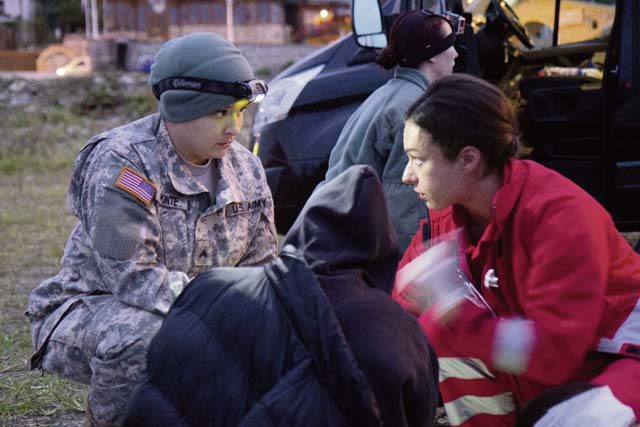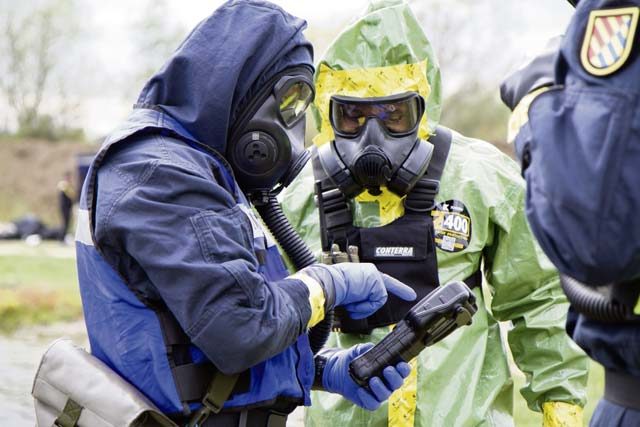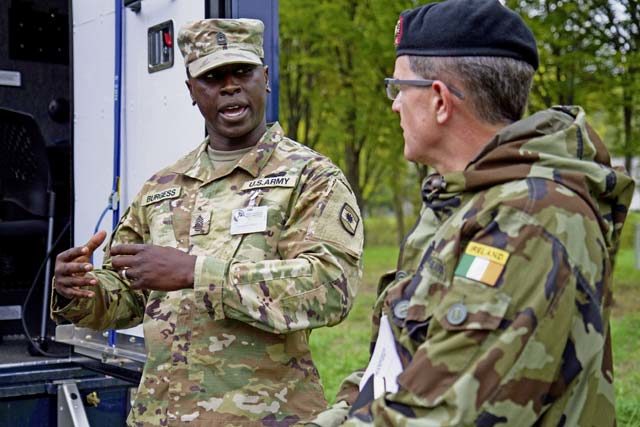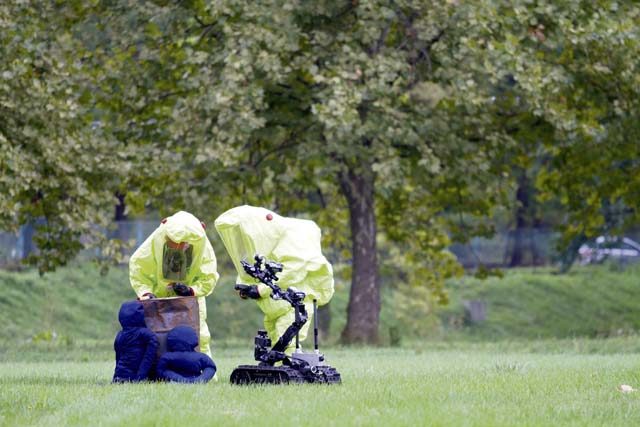
TUZLA, Bosnia and Herzegovina — U.S. Army Reserve Soldiers from 7th Mission Support Command participated in “Bosna I Hercegovina 2017” consequence management exercise led by NATO’s Euro-Atlantic Disaster Response Coordination Centre, Sept. 24 to 29.
Soldiers from 773rd Civil Support Team, 361st Civil Affairs Brigade, and Medical Support Unit-Europe represented U.S. forces from Europe with around 1,200 participants from 34 NATO and partnered countries in the exercise.
773rd CST provided chemical, biological, radiological and nuclear capabilities, a newly acquired top-of-the-line communications vehicle, and a TALON-tracked military robot used for CBRN operations. MSU-E provided three four-person medical teams that deployed throughout the exercise providing field triage and first aid.
“[‘Bosna I Hercegovina 2017’] is an excellent opportunity for our soldiers to get out and work with partnering nations and see more of the world. It opens their eyes,” said Col. Daniel Bohmer, 7th MSC Task Force Commander at EADRCC, who works as a civilian nuclear pharmacist in Moorhead, Minnesota.
The intent of the exercise is to strengthen the host nation’s capacity to effectively coordinate international disaster response operations. Bosnia and Herzegovina was devastated with floods and landslides in 2014. A NATO civilian team recommended training activities and civil-military international exercises to help the host nation deal with future geological and environmental challenges.
Participants worked together during a two-day, real-time field training exercise here and in the vicinity. Scenarios included water search and rescue, casualties trapped in a collapsed building, chemical spills, landmine incidents, industrial fires, and flash floods.
Capt. Dino De La Hoya, 773rd CST operations officer in charge, believes the civil-military relationship requires continuous involvement.
“[Joint] training helps relationship building so you understand each others’ abilities,” said De La Hoya, “When you’re getting to that handshake/first-name level, you know you’re doing good things,” referring to seeing familiar faces at “Bosna I Hercegovina 2017” from participating in EADRCC’s “Crna Gora 2016” in Montenegro.
“Trust and how you relate with others are factors in our readiness to position ourselves in an event of an actual disaster,” he added.
Sgt. Pattisue Graham, practical nurse specialist with MSU-E who works at Kleber Health Clinic in Kaiserslautern as a civilian, realized through joint medical training at “Bosna I Hercegovina 2017” that medical practices are similar across the partnered countries.
“I assumed there would be more differences among the medical practices but after talking with [partnered nation’s medical teams] and going over scenarios there’s less differences than I first thought.”





